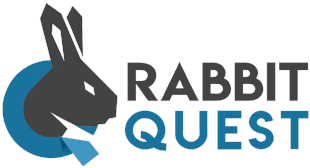How can you help employees turn their New Year's goals into lasting actions? 🚀
The office buzzes with energy as the new year begins. Everyone’s back recharged, filled with motivation, and ready to take on their resolutions like champions. You can feel the spark in the air, that this is-going-to-be-our-year vibe. As an HR manager, you can support your employees in making their resolutions a reality, motivating them with practical strategies to stay on track. How can you create a space where their enthusiasm grows, and new habits feel achievable and fun? Let’s explore how to keep the energy flowing and make the start of this year a win for the whole team.
Time to read: 5 minutes
New year, fresh energy: let’s put it to work! 💼
At the start of the year, many employees feel like they can conquer the world. The same excitement might fuel HR managers to create multiple programs, organize wellness sessions, and even revamp existing vitality initiatives all at once. While this enthusiasm is inspiring, it’s easy to see how it could overwhelm both employees and yourself. Think of it as the New Year’s resolution effect. Just like committing to daily gym visits and a complete diet overhaul often ends in frustration, biting off more than you can chew in the workplace may lead to unmet goals. Employees might feel overburdened or unsure where to start, and the vitality initiative’s impact could lose its shine.
Why not transform that fresh energy into action by involving employees directly? They will probably more likely join a vitality initiative that is aligned to their input. You can start by gathering their opinion on what excites them most. You could send out a quick survey asking for their New Year resolutions or set up a shared document where employees can jot down ideas anonymously. For a more personal touch, bring it up during team meetings and invite employees to share their goals and aspirations.
Realistic goals, real results ✅
Maybe you remember from last year that you set high goals in January. And in March you know that these goals were impossible to change. That is why it is important to set realistic goals. Those are the ones that feel challenging but achievable, offering a clear path forward instead of creating unnecessary pressure. For example, instead of a vague resolution like "get fit," an employee might commit to joining a lunchtime walking group twice a week. It’s specific, manageable, and builds momentum without overwhelming them.
To help employees rethink their objectives, encourage them to break big aspirations into smaller, manageable steps. Offer general guidelines that help them turn personal goals into actionable plans. For example, create a simple checklist:
- Is your goal specific? For example, “I want to walk twice a week” is better than “I want to exercise more.”
- How will you achieve it? A plan like “I’ll walk every Tuesday and Thursday” provides structure.
- When will you take action? Adding a time, such as “during lunch breaks,” ensures commitment.
HR managers can share this checklist in an engaging way. You might send it as part of a kickoff email, include it in a shared document, or even discuss it briefly during a team meeting. When employees have tools to guide them, their goals feel achievable, and progress becomes a shared celebration.
Healthy habits that actually stick 🧠
Every HR manager wants to see employees thrive, especially when the year begins on such a positive note. But here’s the thing: habits that stick aren’t built overnight. Employees need time and support to embrace new routines, whether it’s joining a vitality initiative or making healthier daily choices. And now that employees have shared their resolutions, it’s time to help them turn those goals into reality.
To create lasting habits, it’s essential to replace an old routine with something new rather than just eliminating it. For example, if someone wants to eat fewer sweets, suggest swapping candy for a delicious, healthier snack. This way, the new habit feels rewarding, not restrictive.
But building habits isn’t just about the idea—it’s about the system. Many people set ambitious goals without a clear way to integrate them into their daily or weekly lives. As an HR manager, you can provide that structure. Consider sending weekly reminders, like a quick email with actionable steps or motivational tips to keep employees on track. For example, a Monday morning email could highlight a small habit to focus on that week, or a Friday check-in could celebrate collective achievements.
Closing thoughts 🔑
January is bursting with fresh energy—a time to turn big dreams into actions that truly count. By focusing on what matters most and taking thoughtful, small steps, you can make this year feel extraordinary for everyone. So, are you ready to channel all that excitement into something truly rewarding?



